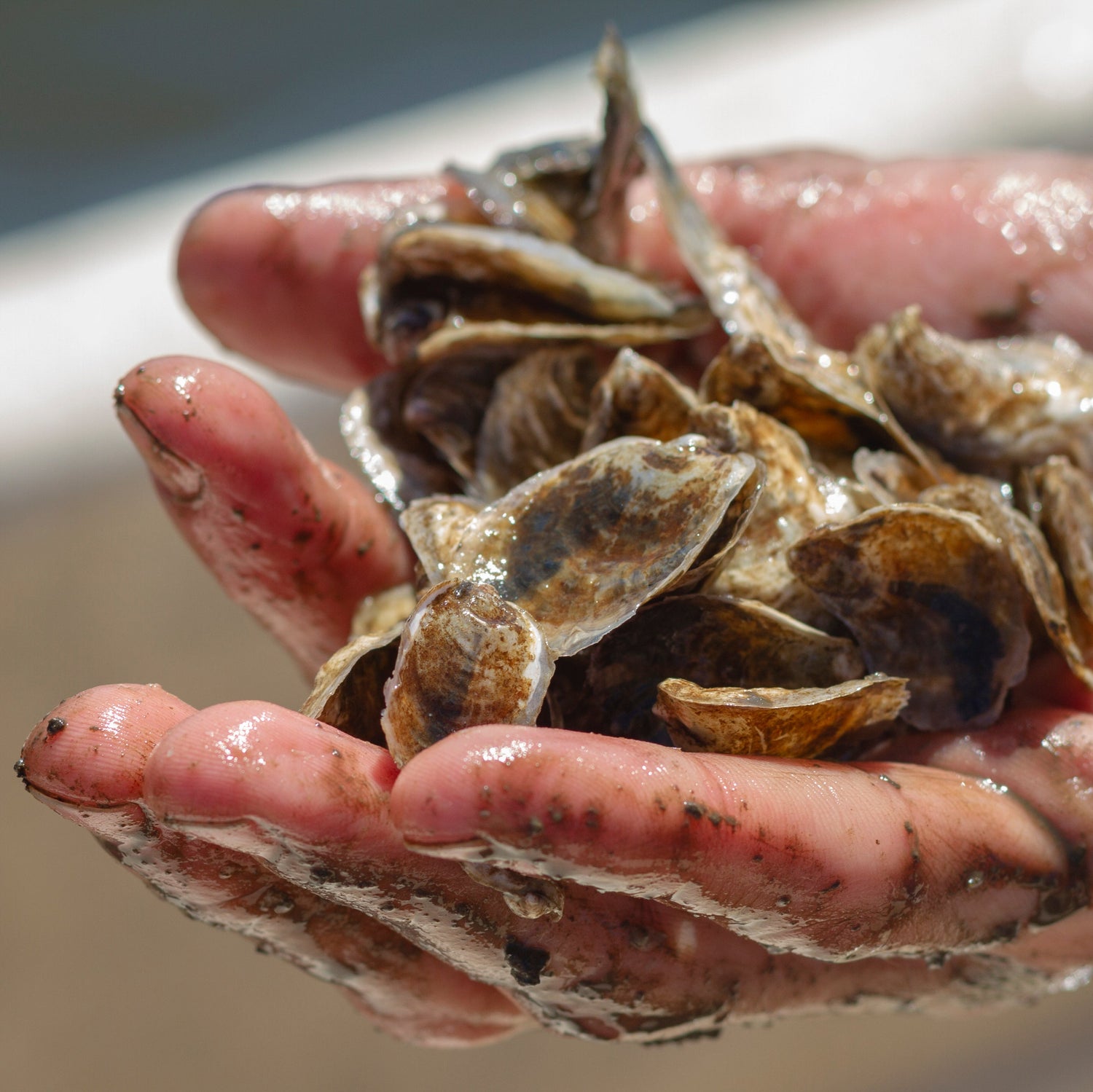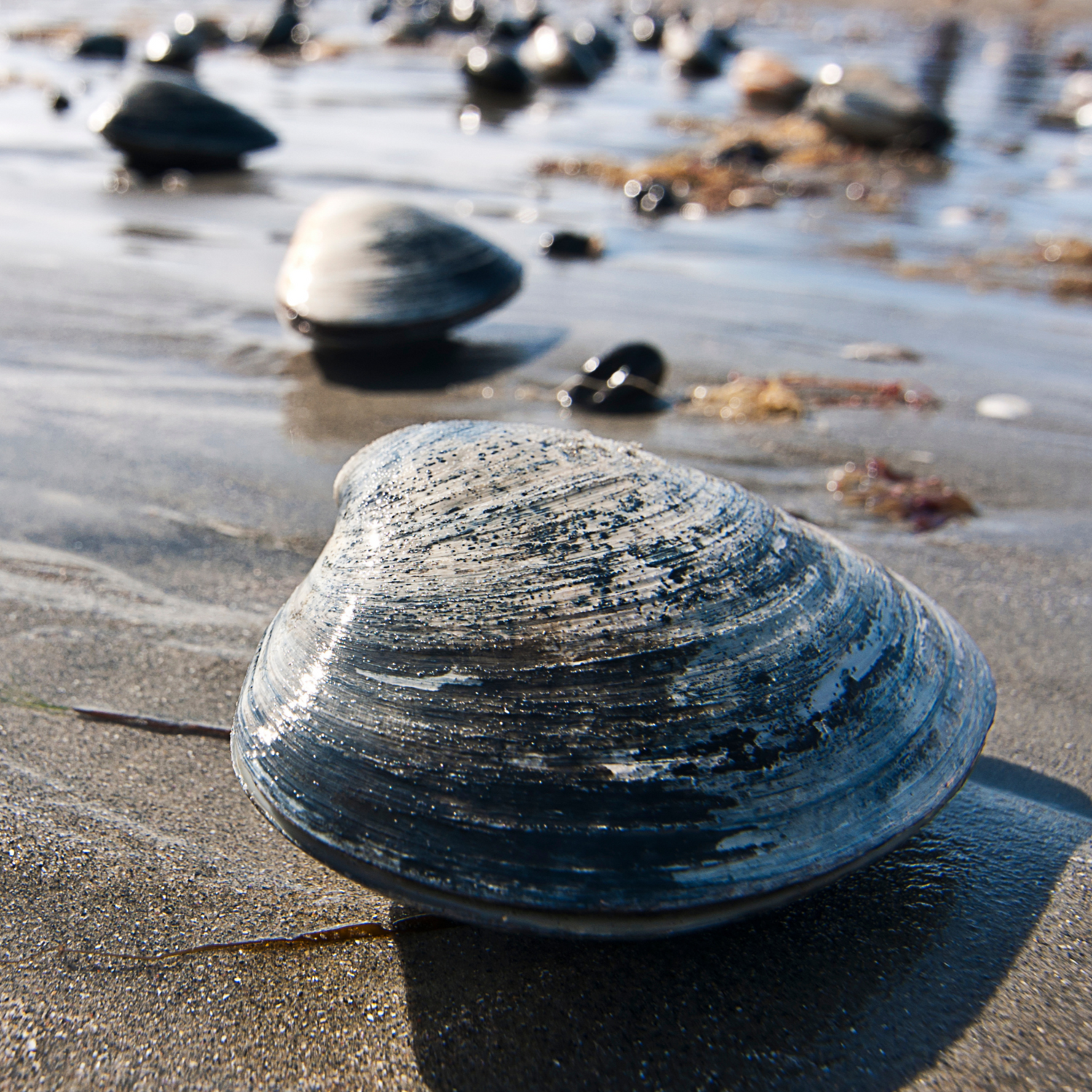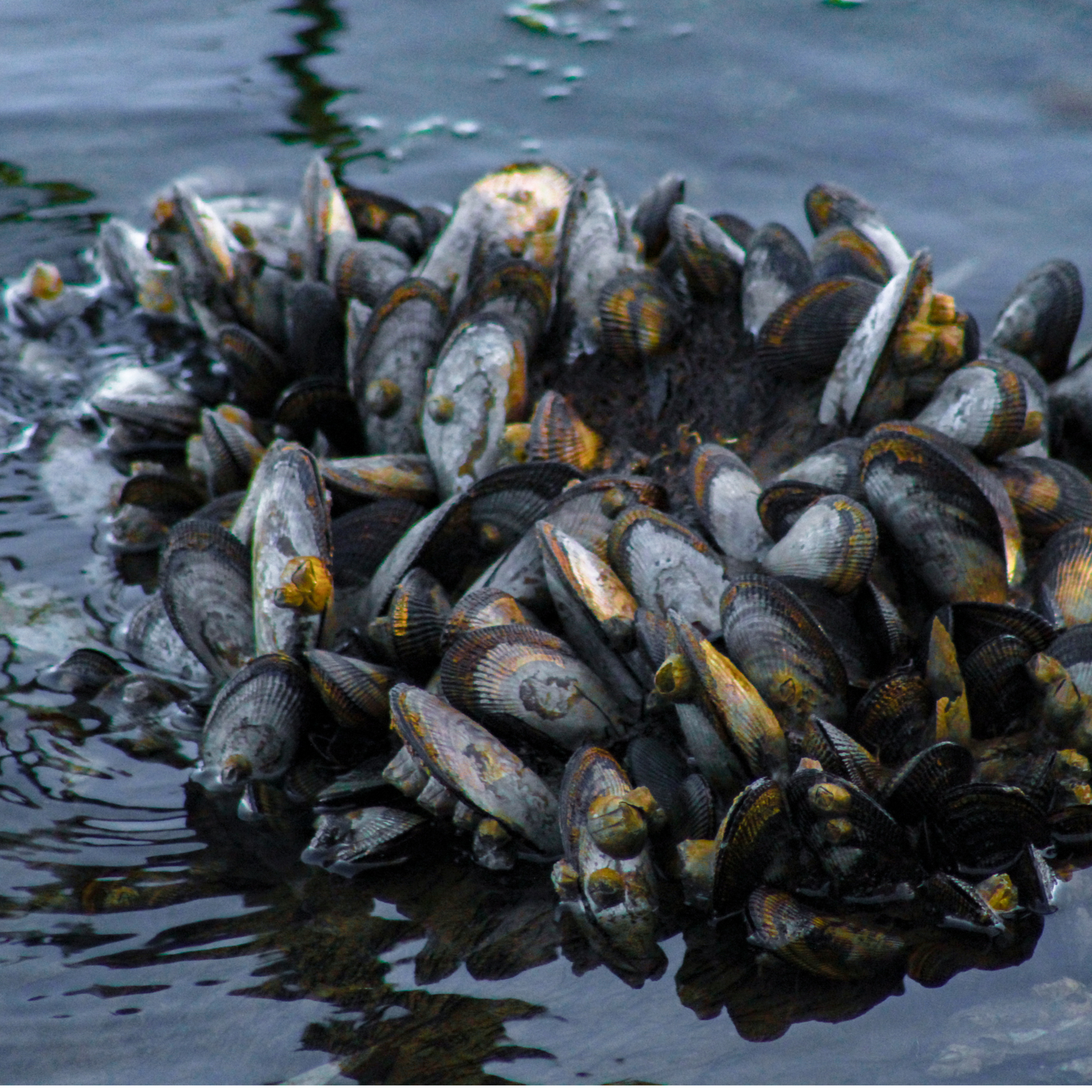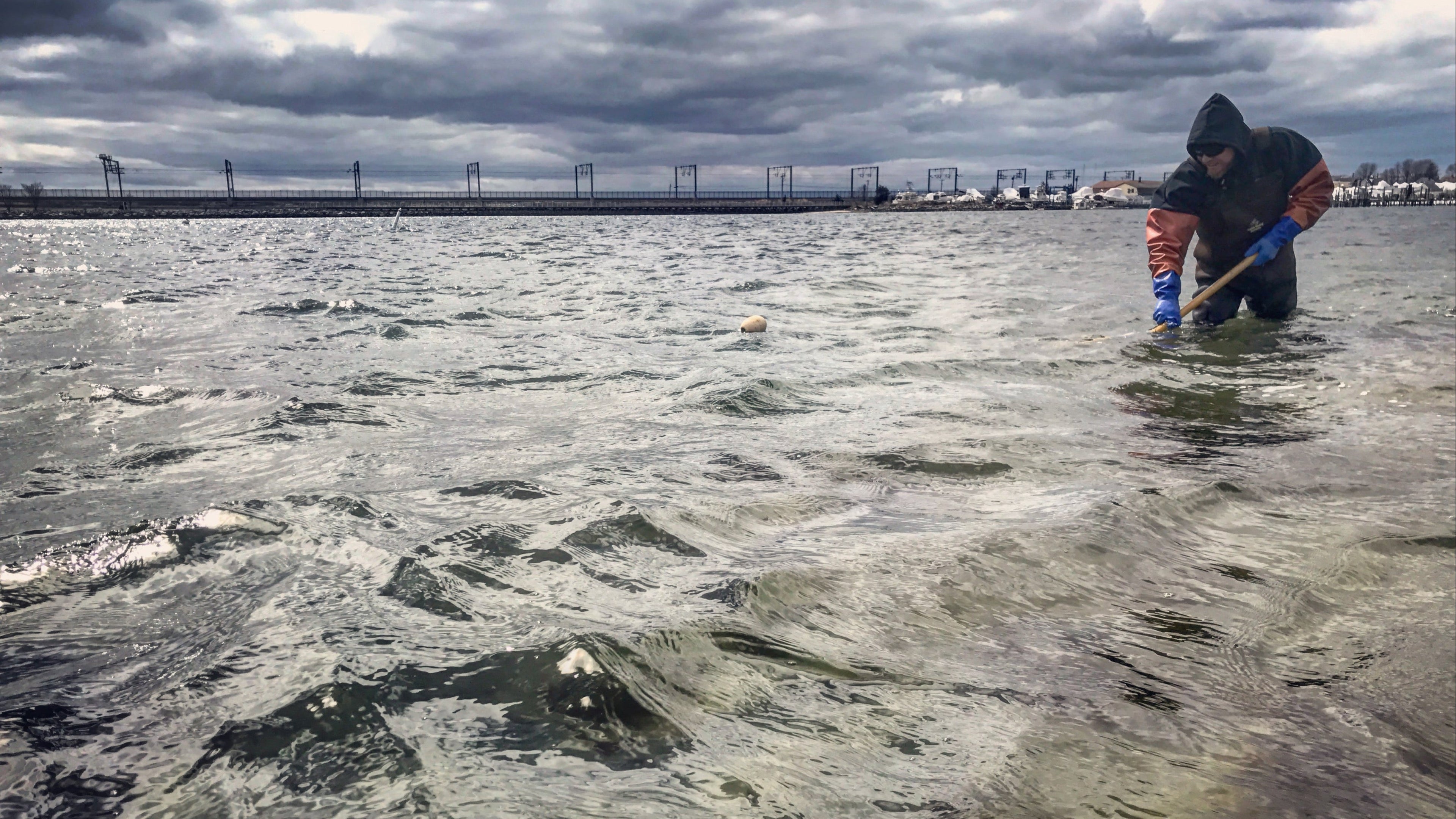Resources
We all benefit from clean coastal waters - whether we are beachgoers, boaters, seafood eaters, nature lovers, etc. Animals of all kinds depend on clean waters to survive.
Shellfish are bio-purifiers, filtering gallons of seawater each day. Check out the videos and links below to see these shells in action. Aquaculture plays a big role in this!
We can each participate in creating cleaner coastal waters by learning about, advocating for, and supporting shellfish initiatives. Oyster Cheers™ to Cultivating Clean Coastlines.

Filter feeders
Nitrogen Reduction
"Oysters, clams, and other shellfish are efficient filter feeders that help remove excess nitrogen from waters by incorporating it into their shells and tissue as they grow."

University of Florida Research
Clams as Biopurifiers
In Florida in 2012, "a statewide harvest of 136 million clams filtered 544 million gallons of seawater per day."

Watch the video
Mussels with Muscles
Watch this video of freshwater mussels in an aquarium filtering the water. The strength of these little biopurifiers benefits all of us.
Frequently Asked Questions about Shellfish
Are they safe to eat raw?
First of all, eating raw or undercooked fish or meat of any kind comes with risks. While people have been eating oysters raw for centuries, it is important to be aware of your risks. This article in Eating Well elaborates on this question with direct quotes from the CDC.
Still, shellfish farmers, seafood purveyors, restaurants, and grocery store/markets are held to high standards and tight timelines, temperatures, and cleanliness in order to sell what they do. We acknowledge that every state handles the procedures a bit differently, and yet, there are strict standards so that people do not get sick.
Can you eat shellfish in the summer?
Yes! Always be sure to buy your shellfish from reputable sources. The regulation on shellfish is stringent between the farmers, the seafood purveyors, the grocery stores/markets. Each bag is tagged and those tags are kept for months so that if an illness arose, it could be traced to that specific far/bed/boat.
During the summer, oysters tend to have a slightly different taste because it is spawning season and there is a abundant food in the water. This gives the meat a slightly watery taste, or dulls the profile a touch. Still, they are safe to eat and lovely to enjoy at a coastal restaurant.
What is merrior?
Merrior is like terrior, but for the sea (Mer = "Sea" in French). Eating an oyster from different locations/beds provides different flavor profiles. Learn more by participating in Oyster Tourism! This could include Oyster Farm Tours, at-home shuckers, an Oyster Tasting Table, and speaking with the farmers themselves.
Does eating shellfish actually help?
Indeed! Shellfish is considered a nutritious food and aquaculture is a low-impact, sustainable business. There are many ways to eat and enjoy shellfish, and your support of these water-based farmers has direct impact on cleaner coastal waterways.
Also, many restaurants are getting involved in state-run shell recycling programs. Read more below!
Get Involved
-
Shellfish Commissions
Shellfish Commissions are volunteer positions in your local town. Commission members hold regular meetings, check the shellfish beds, weigh in on building permits (residential and commercial in waterways), regulate licensing, and participate in water and meat testing of shellfish in order to prioritize safety. A well-run commission helps a town build coastal tourism with safe shellfish for license holders to enjoy!
-
Shellfish License
Clamming, scalloping, or harvesting wild oysters and mussels requires a license. Head to your local town hall to see if there are beds open in your area. If not, check a neighboring town! Shellfish is highly regulated for safety, so after heavy rains, beds are often closed a few days. There are town hotlines you can call to learn if the beds are open before your dig.
-
Shell Recycling
Connecticut Shell RecyclingLearn about the newly approved Shell Recycling program in Connecticut.
Check in your area by using your favorite search engine and exploring "Shellfish Recycling in ___(your state___"

Couples that Clam Together
Getting a clamming license from a town with open shellfish beds is a great activity to do with friends and family. You will need some supplies, a map of the area, and a gauge. Stay tuned for our YouTube channel teaching you the basics so that you can harvest your own clams!
